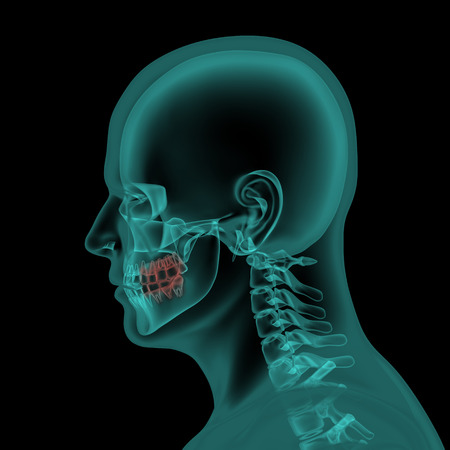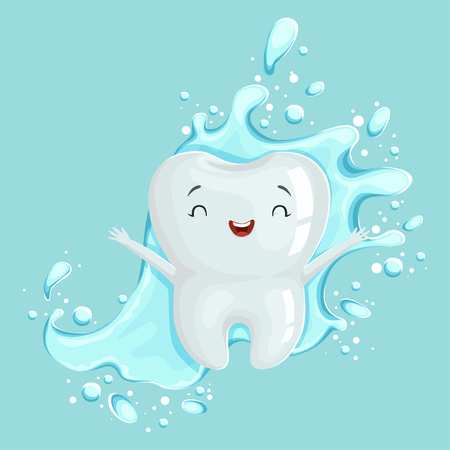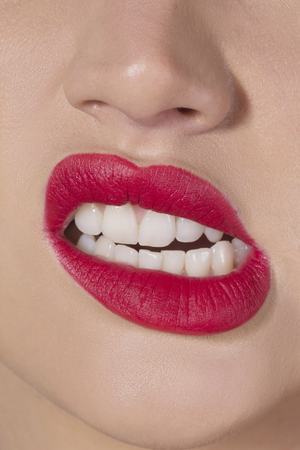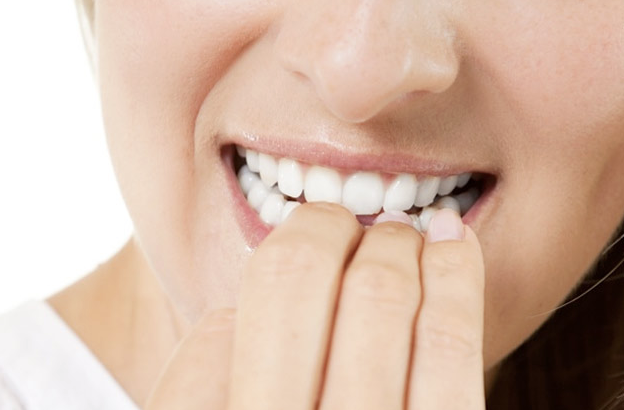Nail biting can be a hard habit to break — but if you don’t, your teeth might suffer much more than your manicure.
According to the American Association of Orthodontics, children or adults who bite their nails could crack, chip or wear down their front teeth from the stress caused by biting. And, those who wear braces put their teeth at even greater risk for root resorption (a shortening of the roots) or tooth loss, since braces already put increased pressure on the teeth.
Also a study in the journal General Dentistry also reported that patients who bite their fingernails, chew on pencils or clench their teeth might be at a greater risk for bruxism — unintentional grinding or clenching that can cause facial pain, headaches, tooth sensitivity, recessed gums and tooth loss.
The signs of bruxism include: flat looking tips of the teeth; tooth enamel that is worn off, causing extreme sensitivity; popping or clicking of the jaw; and indentations of the tongue.
Other dental health risks for nail biters can include sore, torn or damaged gum tissue caused by jagged, sharp fingernail edges and the spread of bacteria from other body parts to the mouth and from the mouth to the nail bed or bloodstream.
Patients might find that wearing a mouth guard can deter nail biting and help prevent further damage to teeth. Some dentists can also help patients use therapy techniques, like learning how to rest the tongue upward with teeth apart and lips shut to avoid tooth damage.

Jaw Surgery (Orthognathic Surgery)
Jaw Surgery (Orthognathic Surgery) Have you been told that you may need to go for jaw surgery? If you're looking for more information about this procedure then continue reading this post as we break down all the information you'll need to know about jaw surgery. What...

Which Mouthwash is Best for You?
Which Mouthwash is Best for You!? Do you have bad breath? Has your dentist or orthodontist mentioned to you that you have plaque buildup or gingivitis? If any of these issues are occurring then it might be time to invest in a Mouthwash or Rinse. Rinsing your mouth can...

What is Bruxism?
What is Bruxism? Do you grind or clench your teeth? If so, then you may have a condition which is known as bruxism. There are two kinds of bruxism that people can have, one being awake bruxism and the other being sleep bruxism. Awake bruxism occurs when a person...

